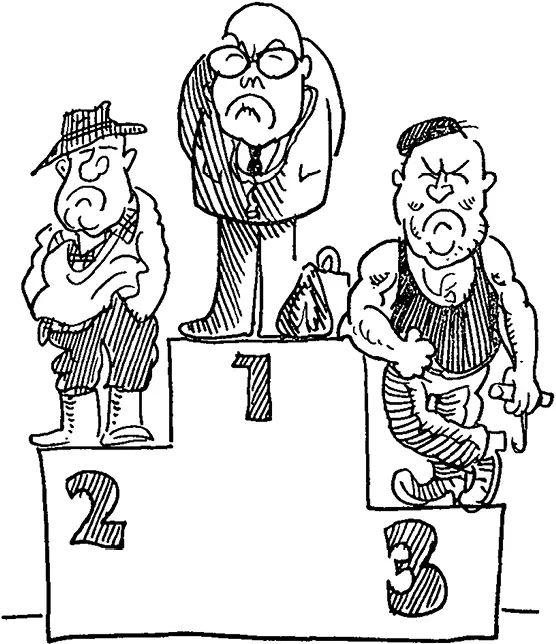Austin Mitchell - The Pavlova Omnibus
Здесь есть возможность читать онлайн «Austin Mitchell - The Pavlova Omnibus» — ознакомительный отрывок электронной книги совершенно бесплатно, а после прочтения отрывка купить полную версию. В некоторых случаях можно слушать аудио, скачать через торрент в формате fb2 и присутствует краткое содержание. Жанр: unrecognised, на английском языке. Описание произведения, (предисловие) а так же отзывы посетителей доступны на портале библиотеки ЛибКат.
- Название:The Pavlova Omnibus
- Автор:
- Жанр:
- Год:неизвестен
- ISBN:нет данных
- Рейтинг книги:5 / 5. Голосов: 1
-
Избранное:Добавить в избранное
- Отзывы:
-
Ваша оценка:
- 100
- 1
- 2
- 3
- 4
- 5
The Pavlova Omnibus: краткое содержание, описание и аннотация
Предлагаем к чтению аннотацию, описание, краткое содержание или предисловие (зависит от того, что написал сам автор книги «The Pavlova Omnibus»). Если вы не нашли необходимую информацию о книге — напишите в комментариях, мы постараемся отыскать её.
The Pavlova Omnibus — читать онлайн ознакомительный отрывок
Ниже представлен текст книги, разбитый по страницам. Система сохранения места последней прочитанной страницы, позволяет с удобством читать онлайн бесплатно книгу «The Pavlova Omnibus», без необходимости каждый раз заново искать на чём Вы остановились. Поставьте закладку, и сможете в любой момент перейти на страницу, на которой закончили чтение.
Интервал:
Закладка:
To make life even more pleasant New Zealand has one of the highest standards of living in the world: second in the car ownership league, fourth in telephones, third in washing machines, second in beer consumption at twenty-five gallons per fuddled capita, and first in tons of soap and number of showers per person. Many of the cars should be in motor museums, the phones don’t have subscriber trunk dialling, the washing machines are prediluvian tubs, the beer is tasteless, and the soap is carbolic. It hardly matters. Wellbeing is more evenly shared here than anywhere else.
This has been achieved with unpromising raw materials. New Zealanders don’t work like Germans, organise like Japanese, or compete like Americans. All they have is a practical flair. The country is too far from anywhere to be natural suppliers and too small to provide a worthwhile market for anyone else. It is too tiny to forge its own destinies and is subject to fluctuations beyond its control with massive internal political repercussions. But for this vulnerability the Continuous Ministry would still be in power (if this isn’t in fact the case). The land has few minerals, just a certain amount of natural beauty waiting to be built on or flooded, and an ability to grow grass. The standard of living depends on the animals unimaginative enough to eat grass and on the world’s willingness to eat them, though if the scientists have anything to do with it, they’ll eat the wool, too, eventually. These are the only valuable exports, although in the past few years the nation has begun to develop a new line which can be expanded in emergency—the export of the limited range of fine quality, locally produced people. Well made New Zealand. And how pleasant the manufacturing process.
Casual observers, after that two-day stay which qualifies them as experts, often assume that the scale of New Zealand’s achievement in the face of the inherent difficulties is the result of a deliberate pursuit of socialism. They call New Zealand the Land of the Long Pink Cloud, or Shroud depending on viewpoint. In fact it’s all been done by accident. People settled there not to build a perfect society, but just to improve their lot. Since they came mainly from working and lower middleclass backgrounds their concept of what they wanted to achieve was the life-style of the groups immediately above them in Britain, the middle class. The goals were modest. (They have continued to think small.) And the methods were practical and workmanlike. There was no ideological plan—they just tinkered as they went along, reducing this little universe to order by organising and regulating it. Then they set out to cut it off from the rest of the world as far as possible. Both methods helped shape the national character.
One of the greatest Kiwi skills is organising bureaucracies. Give them a problem and they’ll set up a committee, or an organisation. They provide welfare through voluntary organisations, with mums forming play-group committees, parents forming PTAs, Bads organising Rotaryisseries or Lion Packs (each desperately occupied in the despairing task of finding any poor and underprivileged to be charitable to). This is the welfare society. Above it hovers the greatest voluntary organisation of all, the State, which is seen as the community in action, rather than the remote abstraction it is elsewhere. The community wants a high and uniform standard of living. The State will provide it with two clever tricks. Full employment eliminates both poverty and the fear of being out of work and endows the people with their casual independence. Family allowances, state housing and welfare benefits also help to provide a level below which it is difficult to fall, a much simpler approach to welfare than President Nixon’s policy of making it illegal to be poor, or the proposal by other American right-wingers to use nuclear weapons in the war on poverty.
Bureaucracy and regulation aren’t enough. The New Zealander also has to live. If economic forces were free to operate, New Zealand would be three farms manned by a skeleton staff. The rest of the people would have to evacuate and leave the country to its rightful owners, Federated Farmers, with just enough others to service their Jaguars. Since there are three million New Zealanders, not just the 100,000 which economic logic would dictate, they have taken the protective measure of building a fence of tariffs and licences round the economy so that a pampered industry can develop.
This careful insulation has annoying consequences. Rabid sectional jealousies develop. Farmers exhibit acute pastoral paranoia when they see the rest of the populace lounging round demanding high wages at the expense of the only productive section (the sheep and the cows). Similarly, employers are bitter at workers who don’t put in longer hours churning out items the market is too small to take. And farmers, employers, workers all combine into a chorus of grumbling about the welfare state, regulations, controls, restrictions and the result of the 3.30.
So vociferous is the chorus you might assume the country is on the brink of civil war or armed uprising. Indeed, large numbers of French arms salesmen went out there after the Biafra war, thinking to find their next potential customer. Also grumbling is a major political sport. Prizes are allocated for it; small ones like a post office or a new school for the short burst, big ones like protection or subsidies for a really sustained effort. The current grumbling league table puts doctors first in both volume and prizes, farmers second. University staffs are now moving up fast, having quickly mastered the art. Geographically it is only fair that Auckland should grow fastest. Its inhabitants have the loudest mouths for grumbling.

The second consequence is that private enterprise is more private than enterprising. It is inefficient. It carries on production in 9,000 small factories where a few big ones producing economically might be more sensible. Industry is expensive; television sets cost twice as much as Japanese imports, though bigger screens may be needed for larger people.
Yet the role of business isn’t to produce cheaply, or efficiently, but to wangle concessions from the government. The most enterprising entrepreneur is he who gets the most support: grants, import licences, or protection. These are the key to profit, not production. Nevertheless the country does export some manufactured goods; in 1969 it even sent $17 worth of musical instruments to Cambodia.
Most of the manufactured exports are potential not real. Entrepreneur and ex-car salesman Ken Slabb wants to exploit the local market for left-handed corkscrews. The market is limited and small-scale production and an inordinate rate of profit will make his product eighty-four times more expensive than imports. The solution is to claim that his main aim is to export millions of left-handed corkscrews every year. With supporting evidence from Ken’s great-uncle and an ex-girlfriend in Australia, poetic submissions are then heard by the Tariff, Development and Upholstery Council, where, despite opposition from the Glove, Mitten and Boottee Trade Association, the council agrees to exclude all left-handed corkscrews to give him a chance to establish himself. Within ten years the price of left-handed corkscrews has gone up 184 times, though sales have trebled because most of those used break on impact with a cork. Ken Slabb has made a fortune and retired to an island in the Bay of Islands, selling out to a British firm of corkscrew manufacturers who used to supply the market before he intervened. The exports have failed to materialise because of unfair trade practices on the part of the Australians and the unexpectedly heavy wage demands of the New Zealand worker. The alternative ending to this story is that prices increase only 180 times and the manufacturer goes bankrupt.
Читать дальшеИнтервал:
Закладка:
Похожие книги на «The Pavlova Omnibus»
Представляем Вашему вниманию похожие книги на «The Pavlova Omnibus» списком для выбора. Мы отобрали схожую по названию и смыслу литературу в надежде предоставить читателям больше вариантов отыскать новые, интересные, ещё непрочитанные произведения.
Обсуждение, отзывы о книге «The Pavlova Omnibus» и просто собственные мнения читателей. Оставьте ваши комментарии, напишите, что Вы думаете о произведении, его смысле или главных героях. Укажите что конкретно понравилось, а что нет, и почему Вы так считаете.












